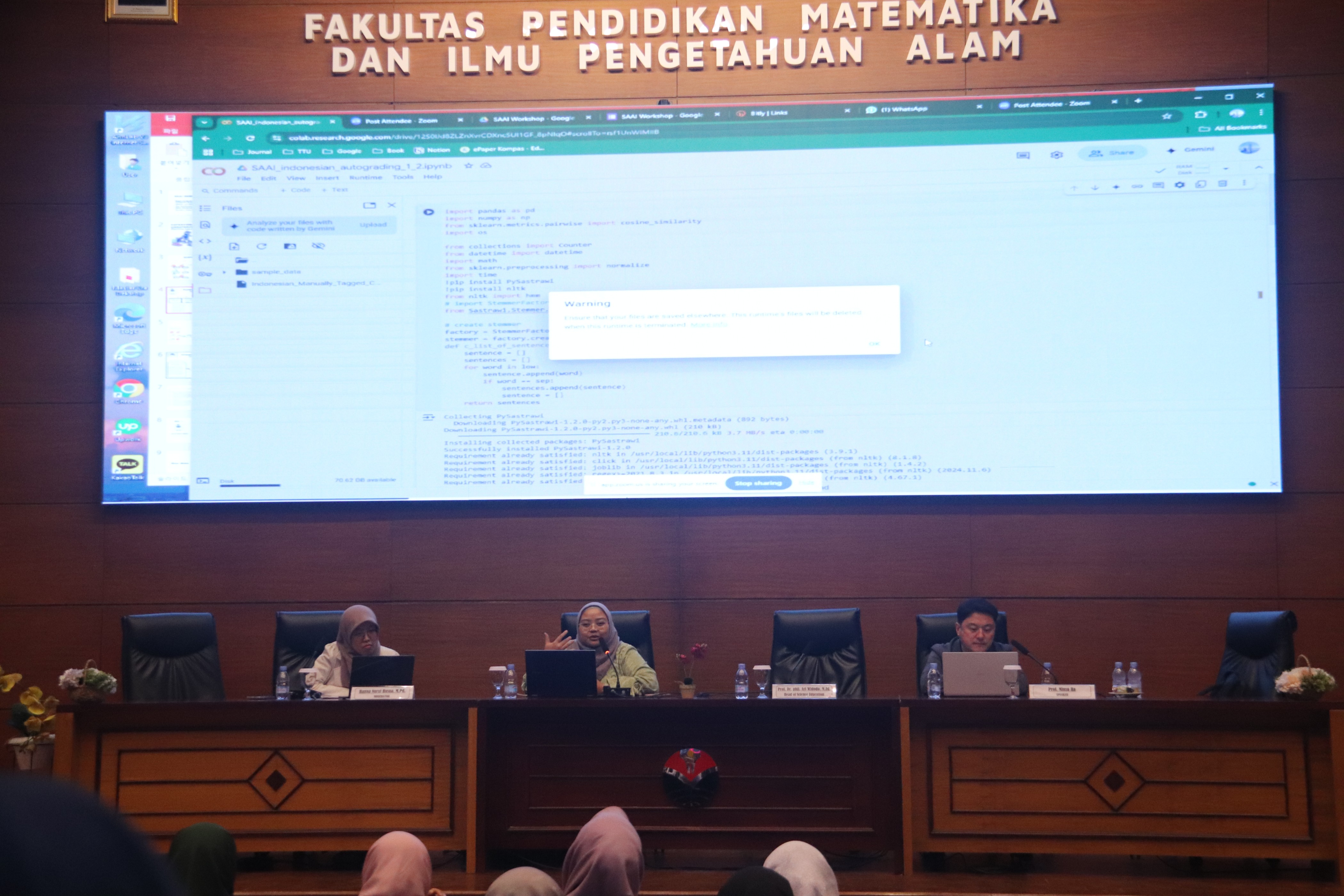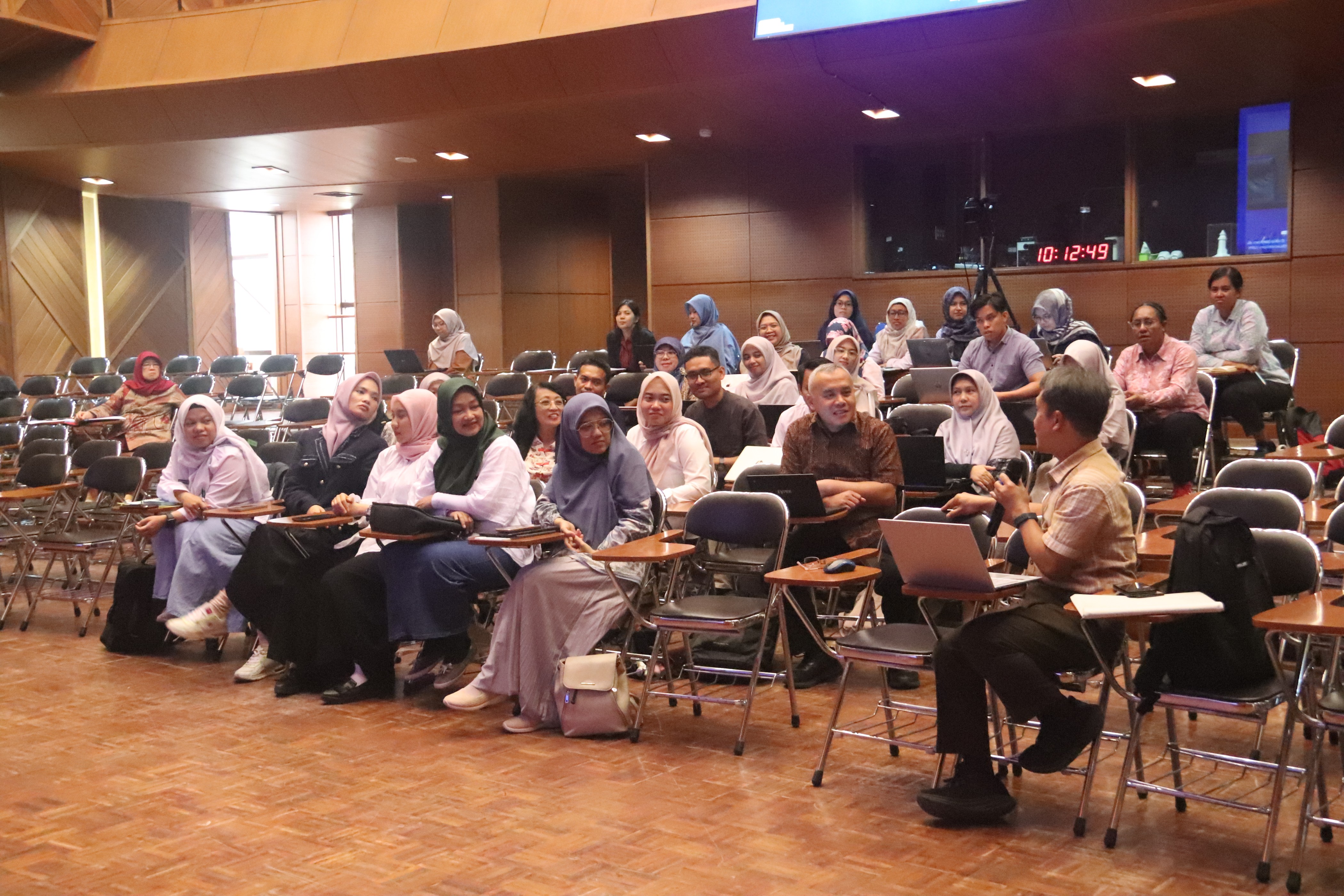
Bandung-May 7, 2025, the Faculty of Mathematics and Science Education (FPMIPA) at Universitas Pendidikan Indonesia (UPI) successfully conducted a hybrid workshop titled “Descriptive Assessment for Students, AI Grading System for Teachers.” The event was a collaboration between the Science Education and Biology Education study programs, bringing together more than 100 participants, both in person at the FPMIPA Auditorium and virtually via Zoom.
The workshop was designed to introduce science teachers to emerging practices in assessment, particularly those involving Artificial Intelligence (AI). The event was guided by Ms. Rani Khoirunnisa, M.Pd. as the MC and Ms. Hanna Nurul Husna, M.Pd. as the moderator. Featured speakers included Prof. Minsu Ha, Associate Professor from Seoul National University, and Ms. Sarah, a member of his research team.
The day began with an opening ceremony and remarks from Prof. Phil. Dr. H. Ari Widodo, M.Ed., Head of the Science Education Study Program. The first session introduced key ideas such as the role of feedback in learning, the development of AI-based assessment tools, and challenges faced by science teachers, particularly those related to grading descriptive answers. Prof. Ha also shared insights from his research in South Korea, drawing parallels with the Indonesian context.
In the second session, participants were guided through a demonstration of the AI grading prototype developed by Prof. Ha’s team. The hands-on activity allowed teachers to upload sample datasets and observe how the tool functions in evaluating student responses. It was emphasized that the AI tool is meant to support, not replace, the teacher’s role in assessment, helping reduce workload and streamline the grading process.
The workshop concluded with an engaging Q&A session, where participants raised questions about the application of AI tools in classrooms, potential technical challenges, and ethical considerations. Prof. Ha encouraged teachers to explore these tools with an open mind and to see technology as a partner in advancing education.
Overall, the workshop provided valuable exposure to innovative approaches in science education assessment and opened pathways for collaboration between educators in Indonesia and international experts in the field.



